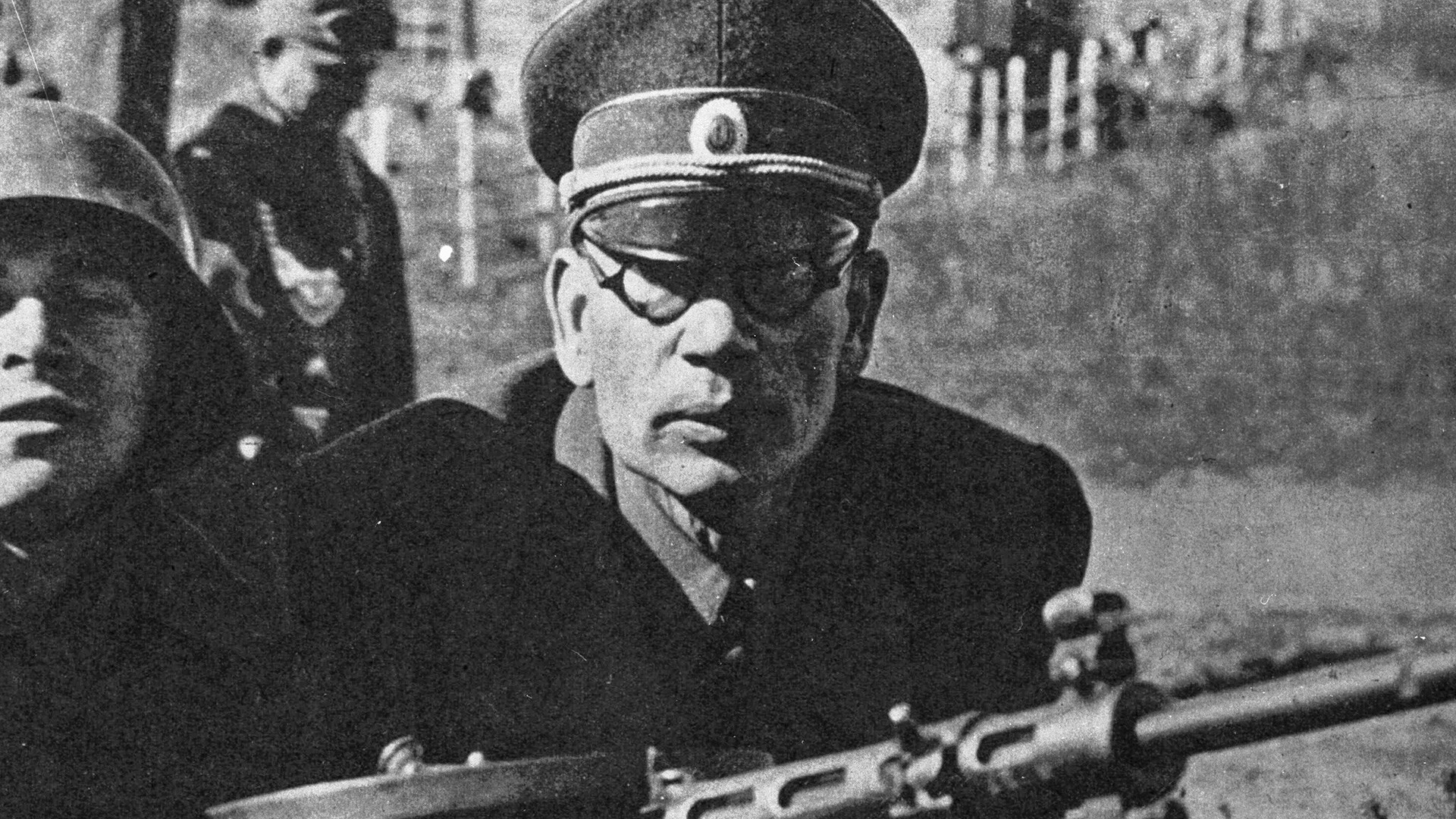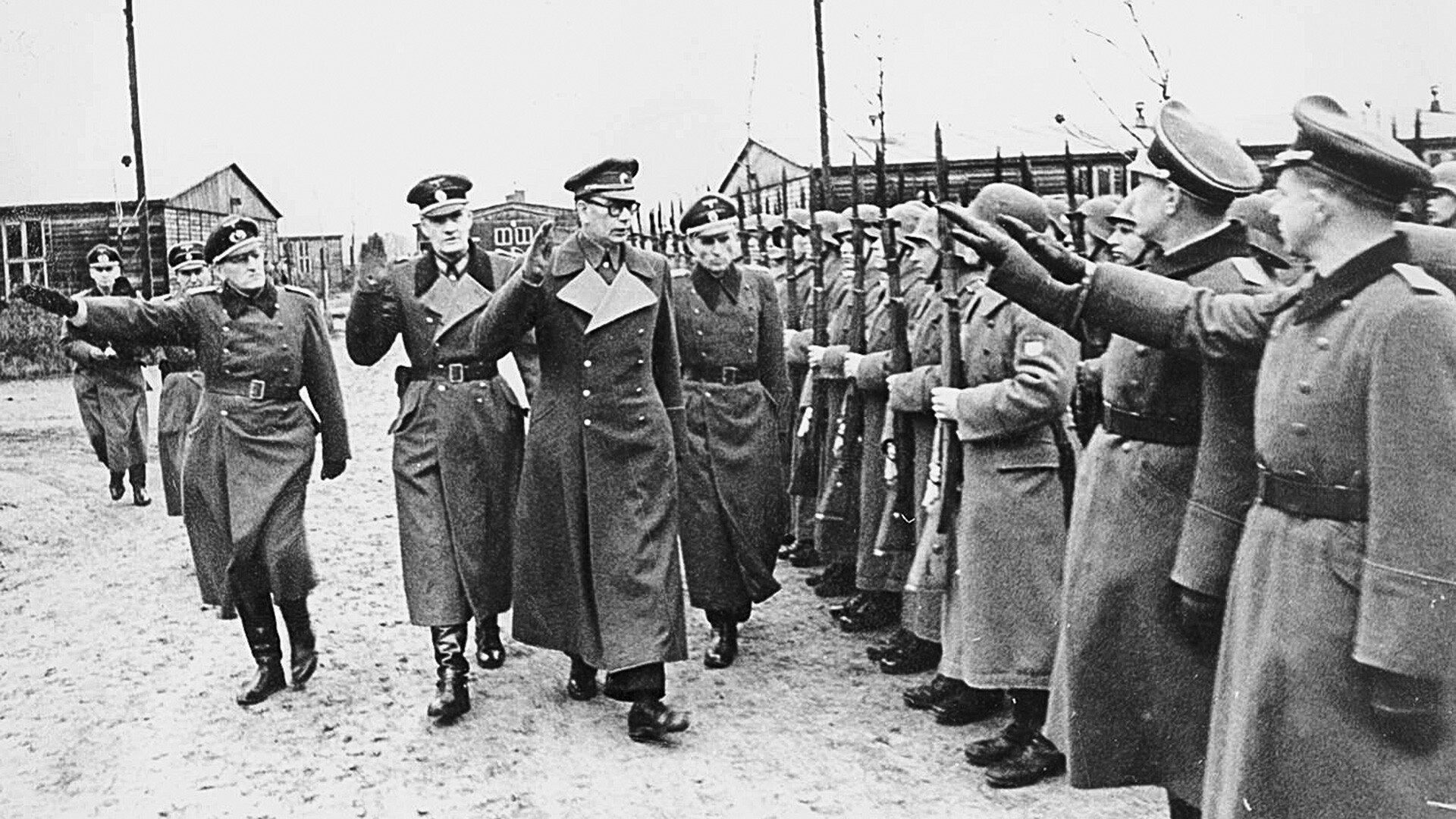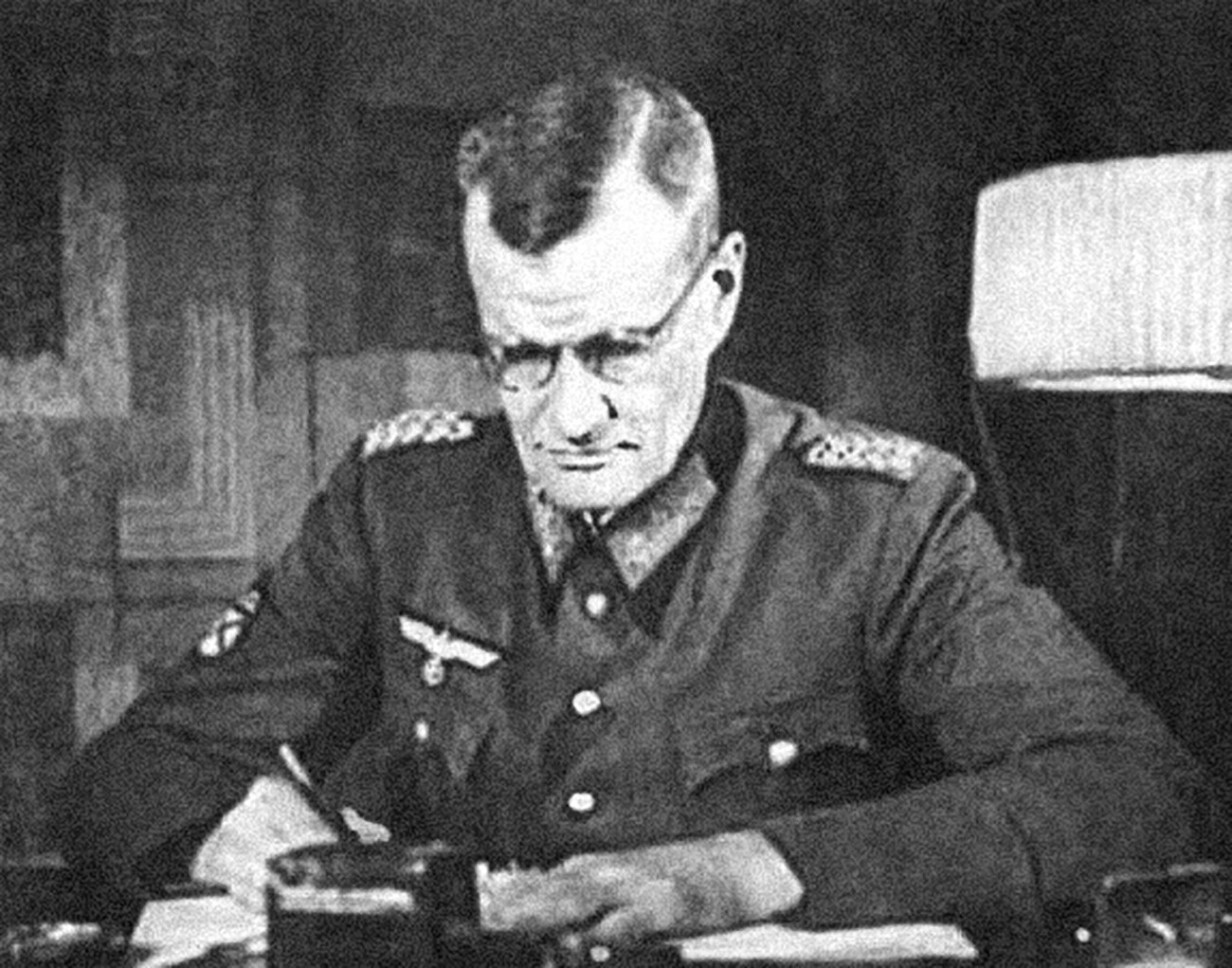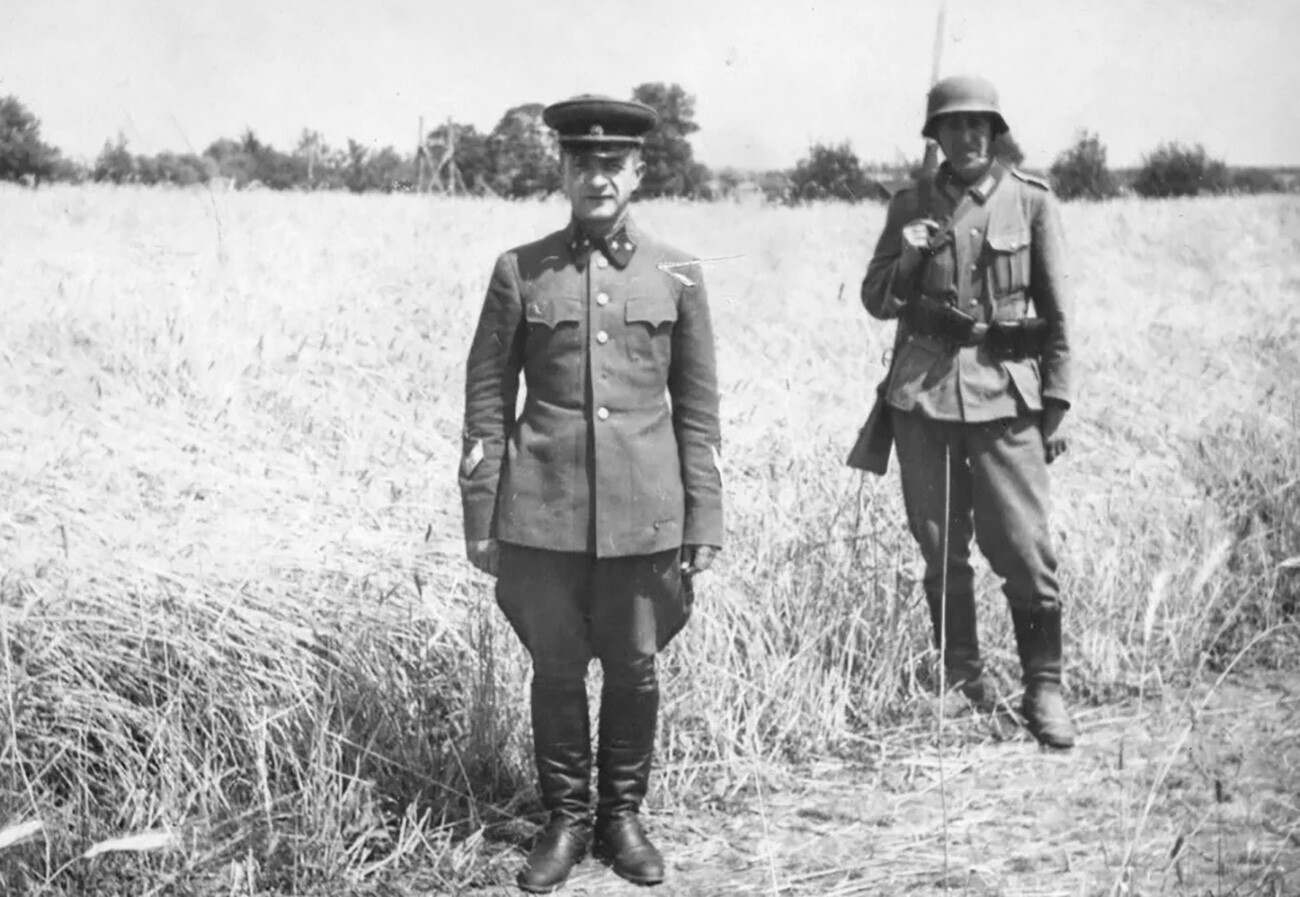
Andrey Vlasov during manoeuvres of Russian volunteers, 1943.
Getty ImagesDuring the war, over 70 Red Army generals were taken prisoner by the Germans. They used promises and threats to persuade them to cooperate, but the overwhelming majority of commanders remained loyal to their oath.
However, 12 generals did agree to cooperate with the enemy. Below are the three most notable ones.

In the USSR, General Andrey Vlasov was once regarded as a talented and up-and-coming military leader. His 20th Army played no small part in the defeat of the enemy near Moscow in the Winter of 1941.
In July 1942, the commander was taken prisoner near Leningrad and shortly afterwards defected to the Nazis. The Gestapo file on him said that he had acted not out of political conviction, but as a result of a sense of hopelessness and the impossibility of realizing his personal ambitions.
German documents stated that, in life, the general adhered to the principle: "I may be up to my neck in mud, but at least I'm boss."
Vlasov became the pivotal figure in the Russian collaborationist movement. He was directly involved in the establishment of the Russian Liberation Army (ROA) and the Committee for the Liberation of the Peoples of Russia (KONR) and, subsequently, headed them.
In the Soviet Union, the pejorative term ‘Vlasovites’ was used to label all Russian-speaking collaborators, even if they were not in any of the ROA structures.
Soviet troops captured the general on the territory of Czechoslovakia on May 12, 1945. He was found guilty of treason against the state and hanged in Moscow on August 1, 1946, along with a group of accomplices.

One of Vlasov's accomplices executed in Moscow that day was the former Red Army major-general Fyodor Trukhin. Deputy chief of staff of the Northwestern Front at the start of the war, he was taken captive by the Germans as early as June 1941 in the Baltic region.
In the POW camp, Trukhin almost immediately expressed a desire to cooperate with the Nazis and, subsequently, did all he could to underline his anti-Stalin and anti-Communist views (which had not, however, prevented him from making a successful career in the USSR armed forces).
Having initially worked in the propaganda field, Trukhin had, by late 1944, been promoted to chief of staff of the KONR Armed Forces. The Germans promised to put all Russophone collaborationist military formations under the command of the committee, but this army of a "New Russia without Bolsheviks" never became a significant fighting force.
On May 8, 1945, Czechoslovakian partisans captured the commander near Prague and handed him over to Soviet troops the following day.

Among all the turncoat generals, the fate of Major-General Boris Rikhter was the most mysterious. The chief of staff of the 6th Rifle Corps went missing on Ukrainian territory in June 1941.
It took until 1943 for the Soviet special services to ascertain that Rikhter had not been killed, but had been taken prisoner and had decided to cooperate with the enemy. The former Red Army general, who had a good knowledge of German and Polish, took charge of an Abwehr sabotage and reconnaissance school in Warsaw under the surname Rudayev.
In the same year, the commander was sentenced in absentia to be executed by firing squad. But, the sentence was never carried out, as Rikhter disappeared without trace in the final days of the war.
If using any of Russia Beyond's content, partly or in full, always provide an active hyperlink to the original material.
Subscribe
to our newsletter!
Get the week's best stories straight to your inbox